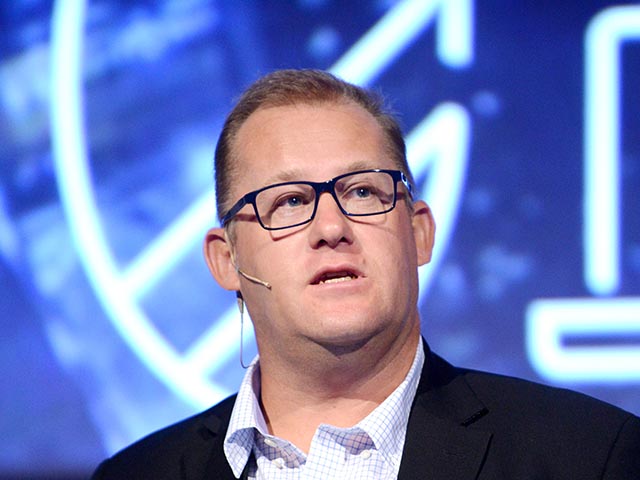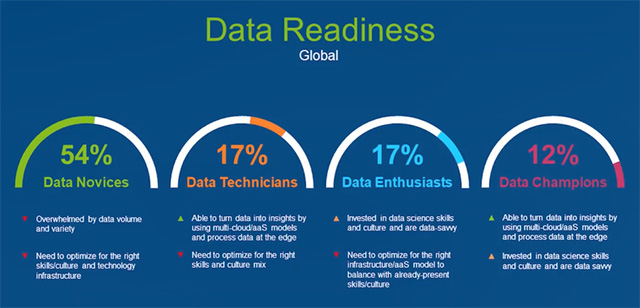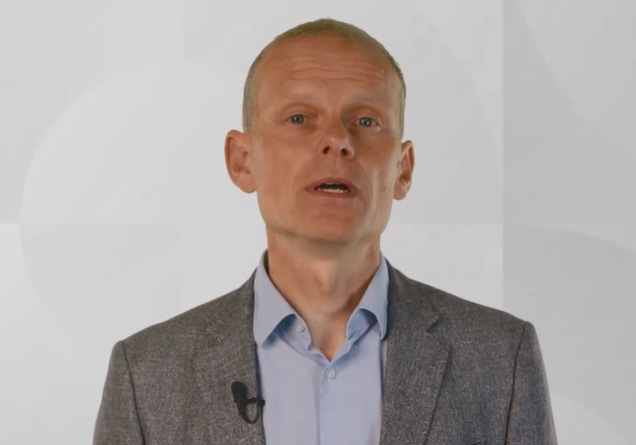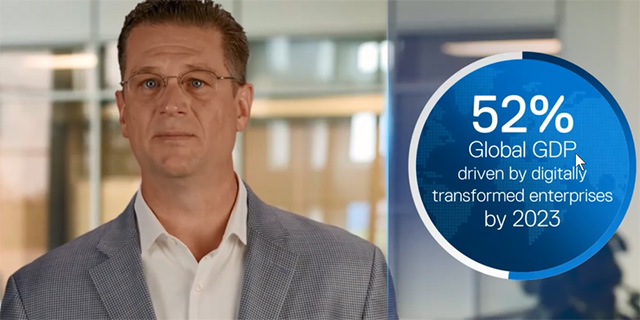Dell Technology Forum 2021: The essential role of data to human progress
By Ryan Noik 26 October 2021 | Categories: Corporate Events
Although the pandemic undeniably changed the business landscape over the past 18 months, some things have remained, such as the annual Dell Technologies Forum, which took place last week. The streaming forum was as packed with addresses and insights as ever.
It began with an address by the CEO of Dell Technologies, Michael Dell, who noted that technology had never become more central or more relevant to global progress. “We have seen technology at play in decoding the Covid-19 virus and the vaccine, in distributing it and in tracking the long-term effects, in a fraction of the time ever before imagined,” he enthused.
He continued that technology has continued to lead the way in education, banking, entertainment, retail and manufacturing, to name a few industries. And of course, since the beginning of 2020, technology has been key in enabling us to pivot to remote work and remote entertainment alike.

Michael Dell
Harnessing data for success
The undeniable focus of this year’s Dell Tech Forum was on the importance of data. Doug Woolley, the GM for Dell Technologies in South Africa, explained that technology and our ability to tap into the power of data is critical to our capacity to face whatever comes next,
“As we saw from our Digital Transformation Index in 2020, data overload, and the inability to extract insights became business-critical. 2020 only accelerated the pace and necessity to transform.
People, technology and processes were already overwhelmed with data, and we now know that data is not going to stop growing,” he elaborated.
In a bid to better help its customers and partners use their data to transform their businesses and derive new insights, Dell Technologies commissioned a study with Forrester Consulting to understand how businesses were currently using and analyzing data and what insights would matter most to them. Furthermore, the study was aimed at helping the company better understand how it could stop data from becoming one of the key barriers to transformation.

Doug Woolley
Unpacking the Paradoxes
The study, Unveiling Data Challenges Afflicting Businesses Around the World, which was based on a survey of 4 036 data decision-makers from 45 locations including South Africa, built upon the biennial Dell Technologies Digital Transformation Index study, which assesses the digital maturity of businesses around the globe.
The study found that there are several data paradoxes in play that are serving as a hindrance to businesses:
1. The Perception Paradox
58% of South African respondents say their business is data-driven and state ‘data is the lifeblood of their organisation’. However, only 11% treat data as capital and prioritise its use across the business.
To provide some clarity, Forrester Consulting created an objective measure of businesses’ data readiness.
The results show that 89% of South African businesses are yet to progress their data technology and processes and/or their data culture and skills. Only 11% are defined as Data Champions: companies that are actively engaged in both areas (technology/process and culture/skills).
2. The ‘Want More Than They Can Handle’ Paradox
According to the research, 68% of South African businesses say they are gathering data faster than they can analyse and use it, yet 77% say they constantly need more data than their current capabilities provide. This could be because
- 66% are guarding a significant amount of their data in data centres they own or manage, despite the known benefits of processing data at the edge – where the data is generated
- An IT strategy that doesn’t scale: 41% are bolting on more data silos, rather than consolidating what they have
Consequently, the explosion in data is making it challenging to meet business requirements, with 64% of respondents stating that their teams are already overwhelmed by the data they currently have.
3. The ‘Seeing Without Doing’ Paradox
While economies have suffered during the pandemic, the on-demand sector has expanded, igniting a new wave of data-first, data-anywhere businesses. However, the number of South African businesses that have moved the majority of their applications and infrastructure to an as-a-service model is still small (11%).
The report also states that an on-demand model would help the 83% of South African businesses that are currently struggling with some or all of the following barriers to better capture, analyse and act on data:
- High storage costs
- A data warehouse that is not optimised
- Outdated IT infrastructure
- Processes that are too manual to meet their needs

Beyond these paradoxes, the study also found that there is good reason for hope. Although businesses are struggling to adopt robust data management strategies, it found that many businesses have plans to create a better tomorrow. For example, 70% of South African businesses intend to deploy machine learning to automate how they detect anomaly data, 52% are looking to move to a data-as-a-service model and 58% are planning to look deeper into the performance stack to rearchitect how they process and use data.
It further highlighted three ways businesses can turn their data burden into a data advantage:
- Modernise their IT infrastructure, so it meets data where it lives, at the edge. This incorporates bringing businesses’ infrastructure and applications closer to where data needs to be captured, analysed and acted on – while avoiding data sprawl by maintaining a consistent multi-cloud operating model
- Optimise data pipelines so data can flow freely and securely while being augmented by AI/ML
- Develop software to deliver the personalised, integrated experiences customers crave

Monique Watson
Growing through tough times
“In a digital economy, data is one of the most valuable business assets, yet today it stands to be a significant barrier to growth,” noted Woolley. He added that navigating this modern-day paradox and turning vast amounts of data into actionable outcomes can seem daunting, especially when on a path to digital transformation.
‘’At Dell Technologies, we empower regional organisations to tackle these concerns by offering tailored end-to-end infrastructure solutions that not only support a data-driven work culture that is capable of predicting the future but is also equipped to harness data to achieve better business results, faster,” he stressed.
One way that the company is putting these words into action is through its Apex Custom Solutions, infrastructure as a service offering. Monique Watson explained that it is made up of two products – Apex Flex on Demand, and Apex Data Centre Utility. The former is as n demand solution that allows customers to expand their infrastructure up or down as their needs evolve, while the latter offers additional flexibility with metered usage and service level agreements, specifically designed for the data centre.
“If we consider the negative impact that Covid-19 has on businesses in South Africa, business have looked at going outside of their traditional way of procuring their IT infrastructure,” she explained.
“What we have seen in market trends and industry drivers, is that customers are looking at as-a-service solutions, which is what Flex on Demand gives them. It offers the end user flexibility and choice to have their IT infrastructure upfront but pay for it over time. It also gives them the ability to choose the capacity they require and only pay for what they use, but at the same time have access to the additional capacity,” continued Watson.

Nick Day
Social responsibility too
It would not have been a Dell Technology Forum without a socially responsible angle, and this year, that came from Intel in an address on a critical topic: diversity and inclusion.
Nick Day, the Dell Team Global Sales Director at Intel, began by affirming that the pace of change in the world is “staggering.” One thing that hasn’t changed, he noted, is the mutual partnership that the two companies share, which has only grown stronger over the past thirty years.
While the companies are continuing to collaborate to deliver innovative products, Day highlighted that both companies have some similar corporate social responsibility and diversity and inclusion goals.
Illustrating this point was Vanice Hayes, chief diversity and inclusion officer at Dell Technologies and Dawn Jones, the chief diversity and inclusion officer at Intel. Both highlighted the importance of embedding inclusion into the DNA of their companies, from creating a more inclusive language to ways of addressing the industry’s historical inclusion problem.
Hayes and Jones stressed that inclusivity is not a problem that will be solved overnight, but rather needs to be an ongoing effort. That effort has been extended to industry peers through the AllianceforGlobalInclusion.com website.

The Digital Transformation Imperative
Turning the conversation back to digital transformation was Jeff Boudreau, the president of infrastructure solutions group at Dell Technologies.
He pointed out that digital transformation has only accelerated as we've evolved into a digital first world. “In a do-from-anywhere economy, an economy driven by data, we've reinvented how we do business, how we work, how we learn, and how we communicate. According to recent reports consumers across the globe spent nine hundred billion dollars more at online retailers during the year 2020 than the prior two year period,” he elaborated.
The bottom line is that the economy now moves on “the current of data”and data is everywhere. For enterprises, this means that it is no longer a question of whether their data is on premise or off-premise. Not only is it both on prem and in the cloud, it is also at the edge and in a third kind of premises, that of co-located data centres.
“Dell Technologies is delivering the innovation in the experiences across your IT strategy to modernize your infrastructure and enable you to see around corners, so that you can be ready for whatever comes next in a distributed multi-cloud world because the world looks very different today than it did just a year and a half ago,” he pledged.
He also spoke to one of the predominant trends that arose from the pandemic, that of remote work. “We flipped the script on work-life balance. Now, it's life work balance and work is an outcome, not a specific place or location,” he stressed.

Jeff Boudreau
The Fate of the PC
At the centre of enabling this, has been the PC. Far from the death of the PC industry that was posited a few years ago, he offered some statistics that showed just how popular PCs and notebooks remained. “We ship approximately a hundred forty three thousand PCS every day, approximately 6 000, every hour, 99 every minute and 1.65 PCS every second of every day, for a little over 52 million annually to provide our customers with the innovation they require in this Do-From-Anywhere World,” he revealed.
Giving enterprises yet another compelling reason to embrace digital transformation, he cited that 52% of global GDP is anticipated to be driven by digitally transformed enterprises by 2023.
Even as the past several years have been rife with uncertainty, Michael Dell summarised Dell Technologies’ view of data and digital transformation succinctly. “One thing is clear: we have more power now to do more good and create more human progress than at any time in our lifetime. I am confident that together we are building the infrastructure for a data-fuelled future that is healthier, more sustainable and more equitable, a future that is bright with promise and opportunity,” he concluded.
Most Read Articles

Have Your Say
What new tech or developments are you most anticipating this year?



